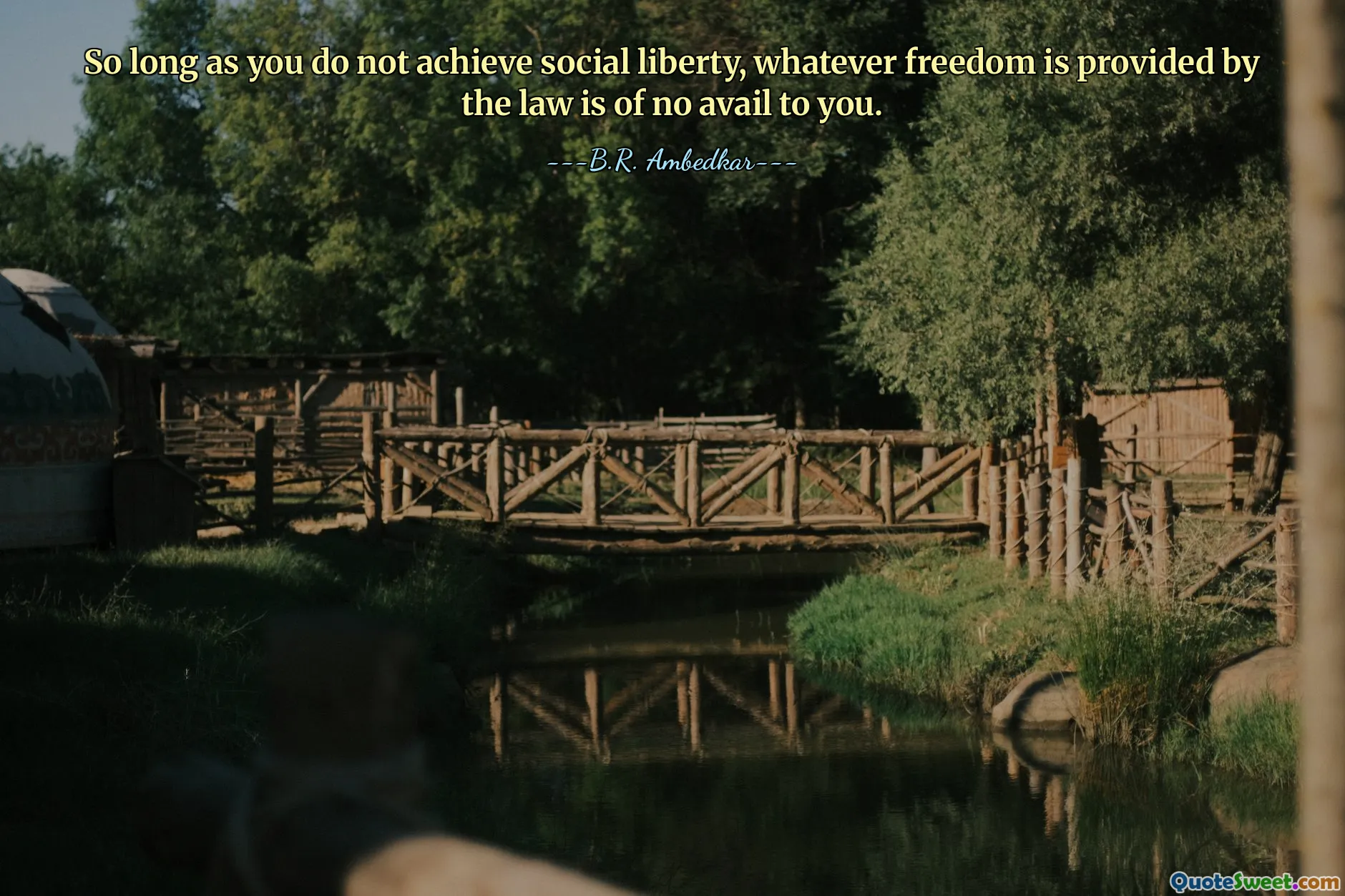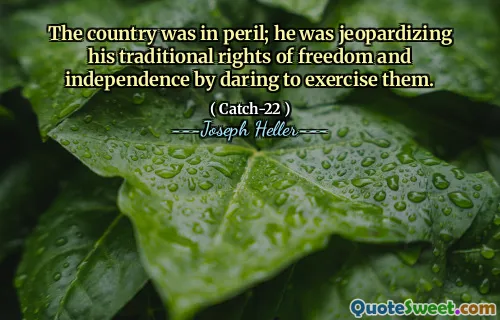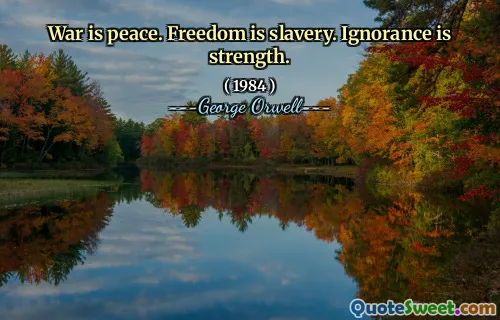
So long as you do not achieve social liberty, whatever freedom is provided by the law is of no avail to you.
This quote by B.R. Ambedkar profoundly emphasizes the complex relationship between legal freedom and social liberty. It points to the idea that mere legal recognition of freedom or rights is insufficient if the societal conditions that allow those freedoms to be exercised meaningfully are absent. Social liberty, in this context, refers to the deep-rooted inclusion, acceptance, and equal opportunities that individuals need to truly enjoy the rights bestowed upon them by law.
Reflecting on this statement, we recognize the layers that contribute to true freedom. Legal frameworks alone do not guarantee justice or equality. Laws might declare equal rights, but without a social environment that dismantles discrimination, prejudices, and historic inequalities, those laws could end up being ineffective or purely symbolic. This leads to an important realization about the nature of freedom—it is multidimensional. Freedom depends on not just codified laws but also on social attitudes, cultural norms, and institutionally embedded practices.
Ambedkar places social liberty as a prerequisite for legal freedom to have any real impact. Historically and in contemporary times, marginalized groups often face barriers even when laws have been implemented to protect their rights. The supporting social conditions are essential for transforming legal rights into lived realities. Without social liberty, people might be free on paper but remain confined by societal judgments, discrimination, and limited access to opportunities.
This quote also inspires a broader inquiry into social justice movements and governmental responsibilities. It underscores why reforms must address both legal structures and societal mindsets. Activism that solely focuses on law changes but ignores ingrained social inequalities might fall short. True equality and freedom emerge from an integrated approach that harmonizes law with social practice and cultural change.
In essence, Ambedkar invites us to reflect deeply on the meaning of freedom and the work needed to achieve it comprehensively. It challenges us to think beyond legal formalism and to acknowledge the importance of social change as foundational for the actualization of rights and freedoms. It is a call to not only create laws but foster an equitable society where freedom can be genuinely experienced by all.











